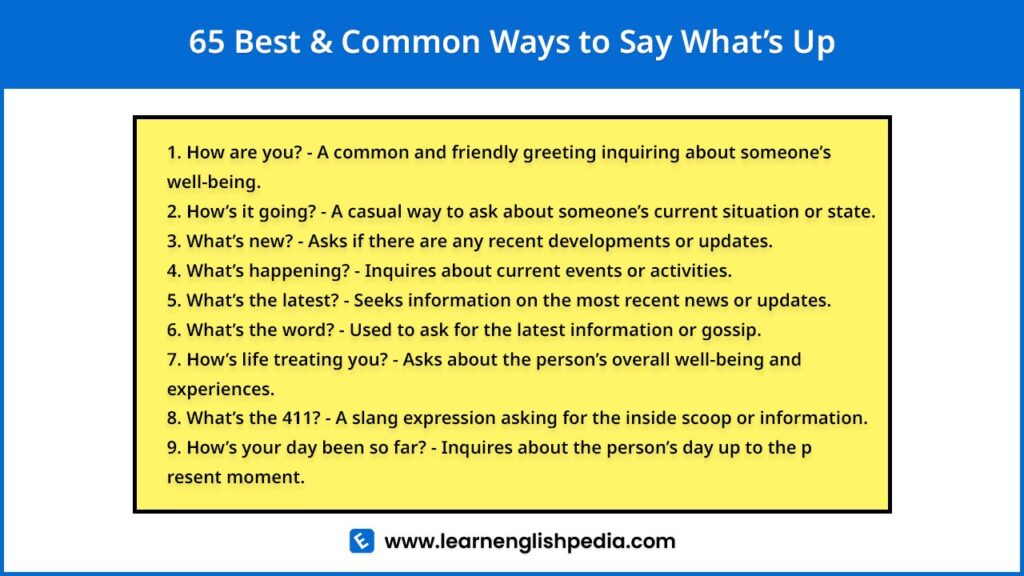Different Ways to Say Because | A single word can have many shades of meaning and expression in the complex fabric that is the English language.
Our capacity to explain causes and causation rests on one such supple word, “because.”
Language, however, is far from being static; it is always changing and adapting to new situations. The goal of this article is to explore all the other words that can replace the word “because.”
Each possibility, from the formal “owing to” to the informal “since,” has a different flavor, enabling us to express our ideas clearly and imaginatively.
Here is the list of different ways to say because with their applications:
50 Different Ways to Say Because
| Sr. No. | Ways to Say Because | Use |
|---|---|---|
| 1 | Since | Used in formal writing to explain a causal relationship. |
| 2 | As | Appropriate in both formal and informal contexts. |
| 3 | Due to | Often used in formal writing to show causality. |
| 4 | As a result of the fact that | Emphasizes a specific outcome. |
| 5 | With the understanding that | Shows an underlying understanding. |
| 6 | For the sake of the fact that | Emphasizes a specific reason. |
| 7 | In light of | Used when considering new information. |
| 8 | Owing to the fact that | Adds formality to causal explanations. |
| 9 | In consequence to | Explains a direct result. |
| 10 | In as much as | A formal and legal way to explain causality. |
| 11 | As a consequence | Shows a direct cause and effect. |
| 12 | In consequence of | Formal and emphasizes the result. |
| 13 | In consideration of | Used to justify a decision or action. |
| 14 | As a result of | Explains an outcome of a situation. |
| 15 | By virtue of | Indicates authority or power. |
| 16 | With the intention of | Explains the intent behind an action. |
| 17 | In harmony with | Used when actions are in harmony or agreement. |
| 18 | By reason of | Formal and legal, used to explain a cause. |
| 19 | In line with | Used to describe actions consistent with a plan. |
| 20 | On account of | Formal and slightly old-fashioned, suitable for essays. |
| 21 | In agreement with | Explains actions that align with something. |
| 22 | Owing to | Adds a more formal tone to causal explanations. |
| 23 | For the sake of | Indicates a reason for doing something. |
| 24 | With reference to | Used when referring to a particular topic. |
| 25 | For the reason that | A formal and precise way to explain causality. |
| 26 | For the purpose of | Explains the intention behind an action. |
| 27 | In view of the fact that | A formal way to introduce a reason. |
| 28 | On the grounds that | Shows the basis for a decision. |
| 29 | Seeing that | Informal and suitable for everyday conversations. |
| 30 | On the pretext that | Shows a misleading or false reason. |
| 31 | With the aim of | Explains the purpose behind an action. |
| 32 | In virtue of | Formal, used in legal or philosophical contexts. |
| 33 | Insofar as | Used in academic or technical discussions. |
| 34 | In accord with | Used to explain actions in agreement with something. |
| 35 | Thanks to | Expresses gratitude while explaining the reason. |
| 36 | Under the circumstances that | Explains actions in specific situations. |
| 37 | With the proviso that | Shows a condition or stipulation. |
| 38 | Given that | Used to introduce a reason or condition. |
| 39 | On the pretext of | Shows a false or deceptive reason. |
| 40 | On the score of | A formal way to explain a reason. |
| 41 | Through the agency of | Used to describe an intermediary. |
| 42 | In light of the fact that | Emphasizes consideration of facts. |
| 43 | In consideration of that | A formal way to introduce a reason. |
| 44 | On the strength of | Explains a decision based on evidence. |
| 45 | In consequence | Explains an immediate result. |
| 46 | On the account of | Used to explain reasons in a formal context. |
| 47 | In respect to | Used to explain something concerning a particular aspect. |
| 48 | In response to | Explains an action taken as a reaction. |
| 49 | In the event that | Explains actions under certain circumstances. |
| 50 | In adherence to | Shows adherence to a rule or principle. |


